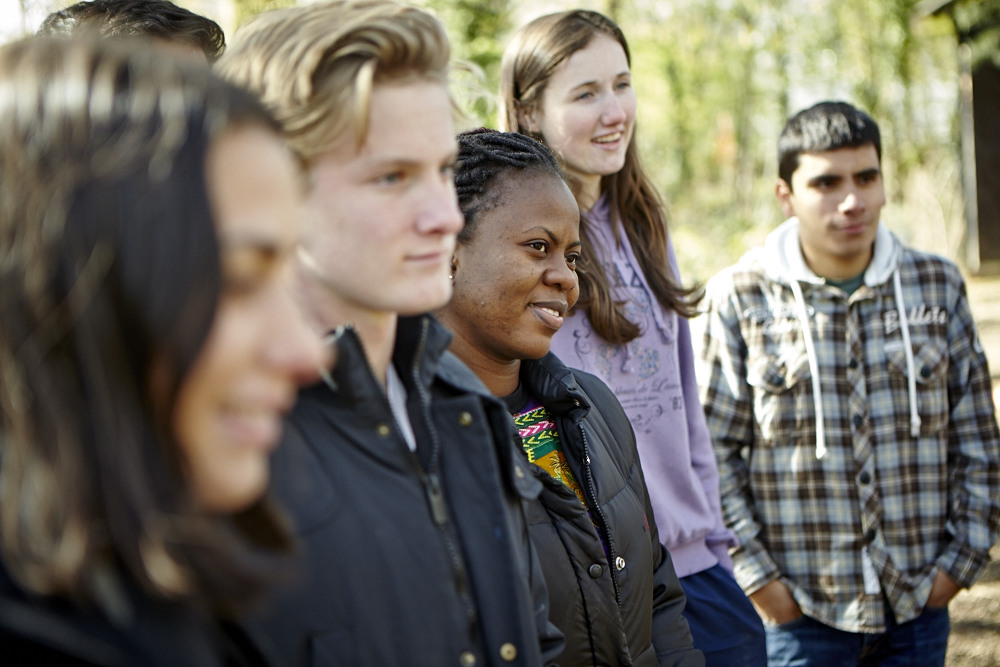Induction – Information for New Volunteers
Use these notes to understand what your induction will contain
1. Introduction
Where do I start ?
Having volunteered and probably attended a few meetings you probably have more questions now than when you were first approached or attended an Appointments Meeting.
The following should give you a good framework to supplement your weekly activities with the section or other engagement. In every aspect, your line manager should be your initial point of contact over the first few weeks / months. This will probably be the Group Scout Leader (GSL) for all people helping within Scout Groups For District or County Appointments, the line manager will be specified in the role description.
2. What is Scouting?
Scouting started in 1907 with Lord Robert Baden Powell’s experimental camp on Brownsea Island in Poole Harbour, Dorset. He took a group of boys from different walks of life and brought them together to live, work and train with each other. Thankfully for us the experiment was a success and Scouting was born.
The aims of Scouting are to provide an opportunity for young people to learn, develop and enjoy themselves. Scouting offers a wider range of activities and skills training than any other voluntary youth organisation. Scouting is open to anyone irrespective of their political or religious belief, ethnic origin or race, mental or physical capabilities and it is open to both boys and girls.
All Scout sections offer a modern, progressive and linked training scheme with the use of badge work to track an individual’s progress and to foster a great sense of achievement. There are several types of badges; ‘Chief Scout Award’, Challenge, Activity and Staged Activity badges. The Challenge and Chief Scout Award badges may be gained through the weekly activities and training, with badge requirements tailored to specific sections. The Activity badges give young people the opportunity to develop a particular skill or activity to a higher level.
Scouting is not just training, awards and badges. Games and outdoor adventurous activities are very important elements of Scouting, not only because they are enjoyed so much, but also because they are so important in the development of young people. Scouting aims to offer young people a balanced programme of a range of activities, events and experiences providing them with Skills for Life.
Scouting is a uniformed, international Movement with over 31 million members worldwide, spread across 216 countries and territories. The number of countries recognising the values of Scouting and accepting its’ principles is increasing and there are just five countries in the world who do not offer Scouting to young people.
In the United Kingdom there are about 500,000 members of whom around 100,000 are adults who have taken up voluntary roles as leaders, administrators and supporters. In
Somerset, these figures are now over 4,000 young people and more than 1,500 adults. In the UK, it is divided into several sections:
* Beaver Scouts 6-8 years old
* Cub Scouts 8-10½ years old
* Scouts 10½-14 years old
* Explorer Scouts 14-18 years old
* Scout Network 18-25 years old
In England, Scouting is organised in Counties, each with a number of Districts. Within those Districts are Scout Groups, Explorer Scout Units and Scout Network
3. Your induction plan
Your line manager is responsible for establishing and introducing you to your induction plan. This, in conjunction with your role description (if appropriate) will guide you through the early weeks.
Alongside the activities detailed in the induction plan, regular contact between you and your line manager is key during the first few months. In some circumstances, the line manager may suggest that another adult, for example the Section Leader, may be appropriate to be your “buddy” .
4. Teamwork
Just as the original idea for Scouting developed over 100 years ago was for young people to “work in teams”, the same is relevant for the adults who support Scouting. You will be part of a bigger team (which is likely to grow as you become more familiar with Group, District and County) and this team working around and with you provides your support network.
Do take opportunities to get involved with training courses, District meetings and events so that your knowledge and enjoyment can grow. Often, learning how other people operate will broaden your knowledge and add to your experiences which you can call upon in your regular role.
5. A couple of videos to help at this stage
6. Help with some acronyms
Like many other areas that we come into contact with, Scouting is full of acronyms and will take some time to master. To get you started, here are a few of those which you may come into contact with or hear in your early times in Scouting.
Click on this link to get a guide to the most commonly used Acronyms.
7. Training
Scouting is not only about young people, but also about the development of adults within the Movement. To support adults in Scouting, the Association provides a comprehensive programme of training to build on existing skills and knowledge and develop new competencies. Some elements of training can count towards externally-recognised qualifications, and within the movement there are also awards to recognise dedication to training and outstanding service.
Training is provided through a number of methods; face to face, e-learning, videos and workbooks. All elements, when completed are validated by a Training Adviser. More information about the Adult Training Scheme can be found at Gloucestershire Adult Training

Thanks to Somerset Scouts for helping us build this page